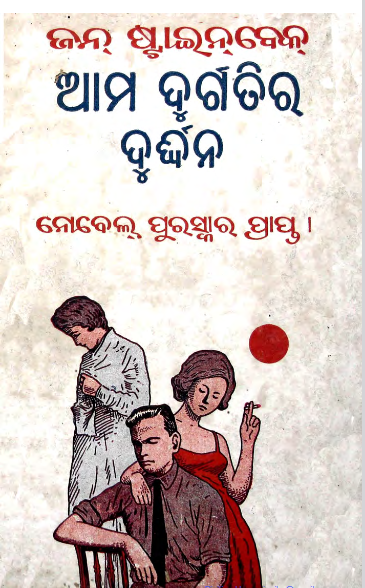Published in 1967, Ama Durgatira Durdina by Chintamani Misra stands as a cornerstone of Odia literature, capturing the intricacies of human emotions, societal challenges, and the relentless pursuit of dreams. The title translates to The Unfortunate Day at Our Durga, which sets the stage for a compelling narrative that intertwines personal and communal struggles, reflecting the socio-political landscape of the time. Misra’s storytelling resonates with readers, drawing them into a world where hope and despair coexist.
At the heart of Ama Durgatira Durdina is the exploration of human resilience in the face of adversity. Misra introduces readers to a cast of well-developed characters whose lives are woven together through shared experiences, aspirations, and challenges. The protagonist’s journey serves as a conduit for examining broader themes such as identity, belonging, and the impact of societal expectations. Misra’s ability to create relatable characters invites readers to reflect on their own dreams and struggles, fostering a sense of connection and empathy.
One of the significant aspects of the novel is its setting, which is steeped in the cultural traditions of Odisha. Misra masterfully paints a vivid picture of the local landscape, rituals, and the festive spirit associated with Durga Puja. The celebration of Durga Puja serves as a crucial backdrop for the narrative, symbolizing not only religious devotion but also the hopes and aspirations of the community. This cultural context enriches the story, allowing readers to immerse themselves in the vibrant tapestry of Odia life.
Throughout the novel, Misra delves into the complexities of human relationships, portraying the dynamics between family members, friends, and lovers. The interactions among characters reveal their vulnerabilities, aspirations, and conflicts, making the narrative resonate on multiple levels. Misra’s knack for dialogue adds authenticity to the character exchanges, ensuring that their emotions and motivations are palpable. The poignancy of their struggles often evokes a sense of empathy, urging readers to consider the multifaceted nature of human connections.
In addition to its character-driven narrative, Ama Durgatira Durdina addresses significant social issues that were relevant during the time of its publication. Misra tackles themes of class disparity, gender inequality, and the struggle for self-identity, presenting a mirror to society that encourages critical reflection. His poignant commentary on the status quo makes the novel not just a work of fiction, but also a sociocultural critique that resonates with contemporary readers.
Another profound element of the novel is its exploration of dreams and disillusionment. Characters are portrayed grappling with their ambitions, only to confront the harsh realities that life presents. Misra thoughtfully captures the tension between hope and disappointment, encouraging readers to reflect on their own experiences of striving for dreams in a world filled with uncertainties. This thematic depth elevates the novel, making it a timeless reflection on the human condition.
Books Info
| Books name | Ama Durgatira Durdina / ଆମ ଦୁର୍ଗତିର ଦୂରଦିନ |
| Author | Chintamani Misra |
| No Of pages | 529 |
| Publisher | Cuttack Trading Company |
| Publication | 1967 |
| Printed At | Nabajibana Press |
| Distributor | NA |

